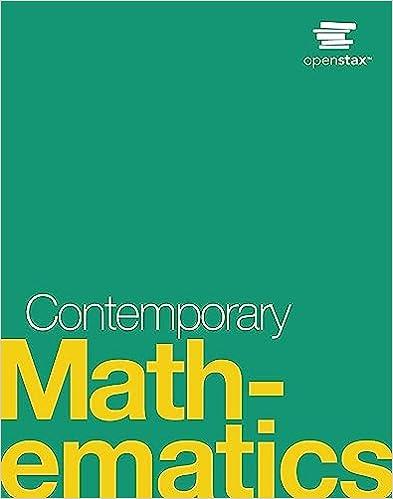Each pair of statements represent true premises in a logical argument. Based on these premises, apply the
Question:
Each pair of statements represent true premises in a logical argument. Based on these premises, apply the chain rule for conditional arguments to determine a valid and sound conclusion.
1. If my roommate does not go to work, then my roommate will not get paid. If my roommate does not get paid, then they will not be able to pay their bills.
2. If penguins cannot fly, then some birds cannot fly. If some birds cannot fly, then we will watch the news.
3. If Marcy goes to the movies, then Marcy will buy popcorn. If Marcy buys popcorn, then she will buy water.
Fantastic news! We've Found the answer you've been seeking!
Step by Step Answer:
Related Book For 

Question Posted:





